Kurt Sutter Q&A: Diving Into The 14th Century For ‘The Bastard Executioner’; A ‘Sons Of Anarchy’ Prequel And Spinoff

His FX series Sons Of Anarchy ran seven seasons, drawing larger ratings each year, pushing the envelope on violence, sex and lawlessness and the notion hourlong series episodes should end on time. Kurt Sutter has gone medieval for his follow-up, The Bastard Executioner. It’s set way back in 14th century Wales, when monarchs held subjects in a cruel iron grip to keep power, and traveling executioners were useful tools to enforce their rule. Sutter has brought along for this ride wife Katey Sagal, who moves seamlessly from the manipulative mother of Sons‘ leader Jax Teller to Annora, a conniving witch/healer who once again appears to be pulling the strings of the title character, played by newcomer Lee Jones. She does this with help from The Dark Mute, a horribly disfigured character played by Sutter himself. It seems like an inside joke that Sutter’s playing a mute, right after his Sons‘ character Otto bit off his tongue. After all, Sutter is the most outspoken show creator in the business, who never met a verbal or Twitter brawl he didn’t relish. Here, he talks about the mythology of the traveling executioner and the world he’ll introduce with Tuesday’s premiere, along with his intent to make a Vietnam-era SOA limited series prequel, and a separate Sons spinoff that will have a decidedly Latino flavoring.
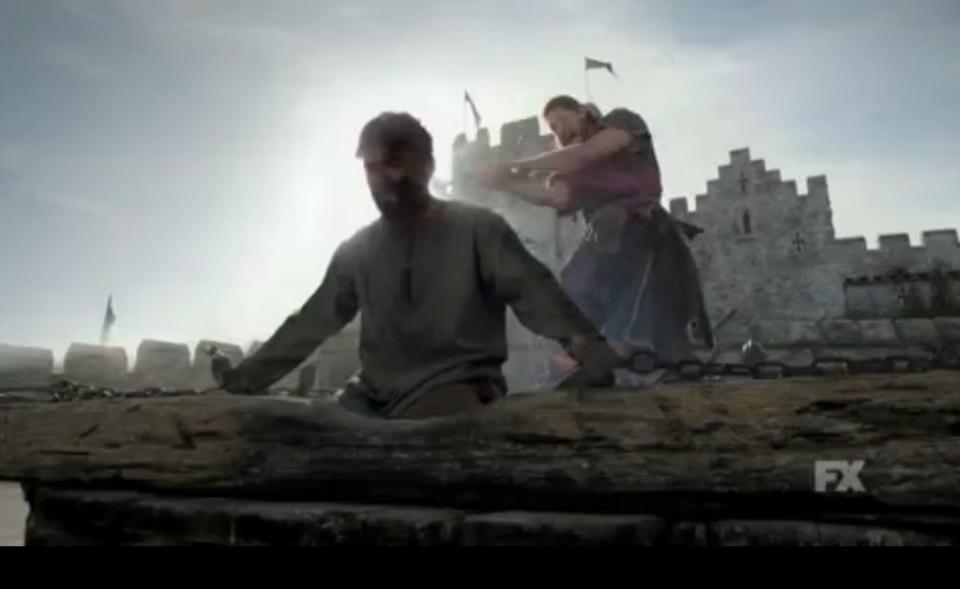
DEADLINE:
The Bastard Executioner introduces Wilkin Brattle, a knight in King Edward I’s army who swears off violence but is pressed to become a kingdom’s house killer to survive. I don’t think I’ve seen anyone lose a head quite like the way you show it. Most historical movies, you see the swinging sword or ax, but not the result.
SUTTER: I’ll just give you one insight on that. I was going insane. I was driving the special effects people crazy because it just wasn’t working. It looked like Photoshop. Then it hit me, I knew what we needed. You need to see the person react, once the head is cut off. So if you watch, there’s a moment we added where, as the head gets cut off, you just see his eye twitch, just a little bit. And you realize. Oh. He felt it. It’s something simple, but to me, I was like, oh, yeah! All my post people were around me going, you’re out of your mind. So we got that one, but there were quite a few other things I ended up having to cut away from.
DEADLINE: The prologue launches your story right after the death of the English King Edward I, the Longshanks character who tormented William Wallace and the Scots in Braveheart. Why set it in that period?
SUTTER: Yeah, Longshanks basically crushed the Scots and screwed over the Welsh. That was a wild time. Initially I had it set in Northumberland, which is England below Scotland. We went to Wales because there’s more castles per capita than anywhere else in Europe, because of Longshanks. He built these monolithic structures all over Wales, mostly for intimidation. They would paint them with Limestone to preserve them, but Longshanks also did it because they would almost glow white in the sun, spectral reminders that, we fucking crushed your soul. When we decided to put the production there, I backtracked and looked at the dynamic that happened in Wales. There were big battles at the end of the 13 century when Longshanks crushed them, and then 10 years from where the pilot takes place, his son Edward II got fucked over and ousted by the Marcher Lords. There’s a general sense of rebellion, which I use as external conflict. But other than a few historical points, I wasn’t bound to very specific things and allowed myself to mix fact with fiction.
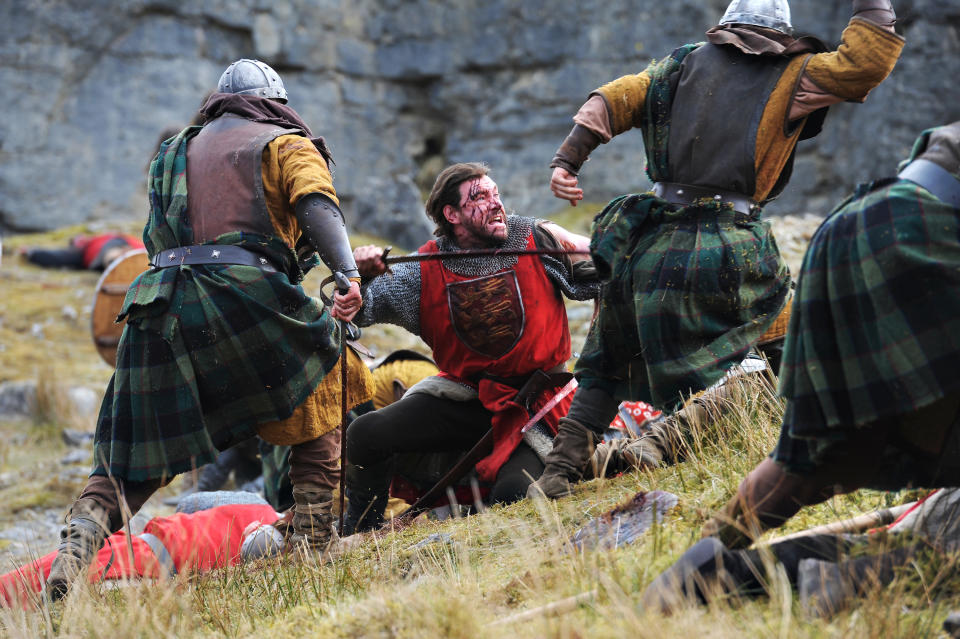
DEADLINE: The fragility of rule over commoners squeezed for taxes makes the institutionalized cruelty understandable. Wannabe monarchs imposed their will and needed executioners for gory public spectacles. There were power struggles in
Sons Of Anarchy, but you’ve taken this to the extreme, no?
SUTTER: I love history and I think it’s why I love writing such in-depth mythologies. I don’t read a lot of fiction but one of my favorite authors is William Kennedy; his books to me almost read like historical dramas because the mythologies are so detailed as he wove fiction with the factual history of Albany. For this period, there’s this great book The Plantagenets, which the BBC turned into a documentary series. I found myself stunned and appalled by this stuff, and if I’m stunned and appalled, it’s got to be some really fucked-up shit. The level of intrigue and incest and backstabbing that went on with this lineage of non-English—they were mostly French–trying to hold on to England, was so fucking dark and insane. Those were strings that were helpful to me.
DEADLINE: You’ve said as a Catholic, the religion aspect also appealed to you…
SUTTER: It’s this weird part of history where Roman Catholicism is dominant and being jammed down everybody’s throat to the point where religion wasn’t a belief, it was an army. If you weren’t Catholic, you were gone. If you were Jewish, you were gone. If you were Muslim, you were gone. Yet, most of the populous was only half a generation away from believing in witches and fairies and goblins and all these things of pagan origin. I loved the idea of that period of time when there’s an awakening of spirituality and more refined things, but for the most part the populous was still very backwards. Which is why, as you said, the level of punishment and the strictness of the laws were so insane. They ruled with fear because people didn’t understand anything but that black and white kind of punishment.
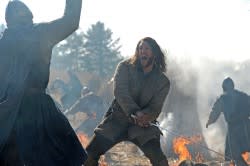
DEADLINE: A rough road to civilized society?
SUTTER: You go through history and realize that any basic human advancement was only done through torture and war and bloodshed. The Magna Carta didn’t happen because someone said, I think we deserve some human rights and a basic understanding of law. It happened because people were driven into the dirt and there was such a sense of rebellion that the powers that be basically had a knife put to their throat to give people some sense of basic human rights and due process of law. It was always after decades and centuries of brutal conflict and abuse. All that stuff fascinates me. I’m still doing research. We learned in school about the Crusades, but there were like 19 Crusades. Some kid would come in and decide he was the dude destined to win back the Holy Land, and tens of thousands of lives would be thrown at this pointless quest that would fail, again. There was no value on human life as opposed to the quest of all things godly.
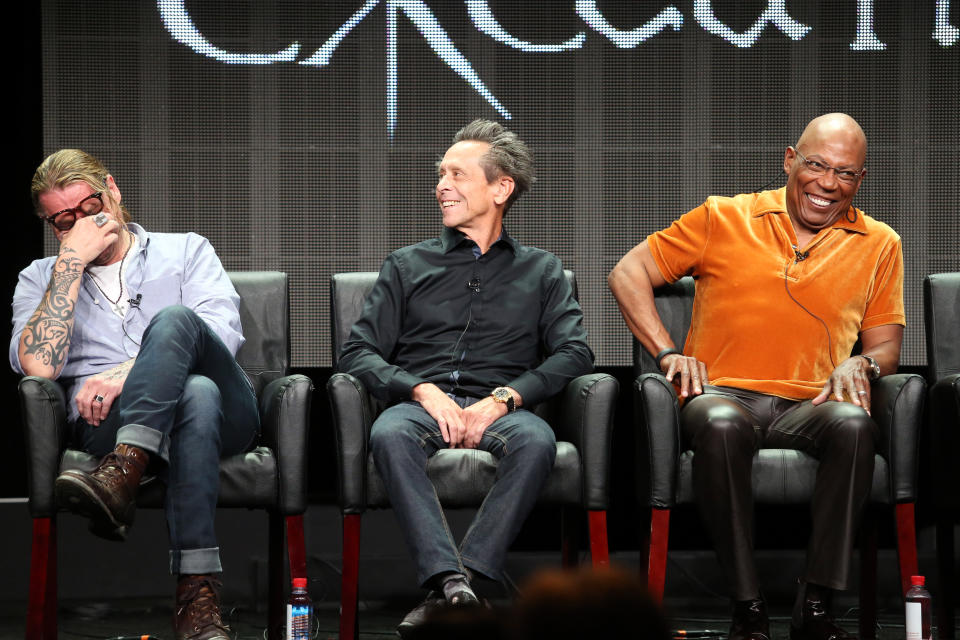
DEADLINE: With that chaos as your backdrop, what made you spark to a traveling executioner as your central character?
SUTTER: It began with Brian Grazer and I, talking about that character. People had a general stereotyped point of view of what a biker was, and that gave me an opportunity to shed some light on that world and show different levels of who they were, and pull back the curtain. I saw the same opportunity here, an archetype to overcome. Most people’s understanding of an executioner is the stereotype dude with the black hood and the big ax. Truth is, every country in every period of time had different ideas of what that job was. There are some great books that document specific executioners. That period, most of the skill work was done by journeymen, including blacksmiths. If you had some kind of trade, there usually wasn’t enough work unless you were in a bigger city like Windsor or London. For the most part, you really had to travel from village to village to make a living. That included the executioners. I wanted that as a way into the series but I wanted it more complicated so it didn’t have to just be about being born into being an executioner, which is a very different show with a different set of conflicts and I felt like it would have put us in a box.
DEADLINE: What kind of box?
SUTTER: Too much like Sons, where you had a guy who was born into a certain destiny and had to fight to get out of it. This device [the main character is mistaken for a real executioner and takes the job or dies] gave me room for something more complicated. Then I just do what I always do, which is steal from really good people.
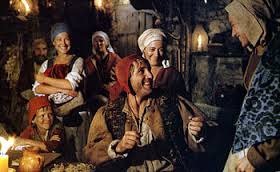
DEADLINE: Like?
SUTTER: One of my favorite movies is the old Depardieu film The Return Of Martin Guerre, which is actually a true story and a book. This French soldier, who’s basically a dick, goes off to war. One day this guy shows up years later and says, “I am Martin Guerre.” It’s a primitive time. There are no records, no paintings, only what people remember. The great thing about the story is that you realize his family knows it’s not the dude but he’s such a better guy that they were like, welcome back. It’s a true story with a tragic ending that always stuck in my mind. In fact, I often thought Matt Weiner must have seen that movie because there were a lot of parallels in Mad Men. So I stole a little bit of that. Then I go back to my Shakespeare for the iconic mistaken identity device and all the complications and great stuff that comes from secrets and what you have to do to maintain a lie. Once I have a really good handle on the characters and the relationships–like I had with Sons with the world and occupation that slides into the background—I like to think your series becomes driven more by character and relationships, and everything else becomes external conflict for those characters to bounce off. It feels like that has happened the same way that Sons did for me, but as you can tell I am babbling because I haven’t slept in three months.
DEADLINE: You rarely see the hands on architect of an iconic show move so quickly into another with this complicated a mythology.
SUTTER: My plan was not to jump on to another show as I was finishing the last one. Things fell into place, the mythology happened organically for me and I just fell in love with the characters and the world. And then it was like, I guess this is where we’re going next. So far I’m having fun, and I am happy with the way the episodes are coming out. I hope people are willing to jump on.
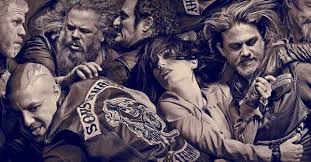
DEADLINE: After seven seasons making
Sons in California, what’s the good and the bad of following up such a success by shooting so far from your comfort zone in Europe?
SUTTER: The good is, I know how rare it is to have the success of a show like Sons, and be given the opportunity to do that again. So when things were unfolding, in what this show looked like and how it was coming together, and that people were excited about it, I had to trust I was heading in the right direction. The biggest challenges are distance and time. I’m not a guy who likes to leave his fucking house, never mind his state and country. That has been a muscle I’ve had to learn how to use again. I’m bouncing back every couple of weeks, and it has been a challenge for Katey as well.
DEADLINE: How about creatively?
SUTTER: I wanted something that scared me a little bit. As much as I loved the contemporary crime genre I’ve been doing for almost 15 years, I really wanted to swing at something else. I didn’t go looking for a period piece, just a challenge, something different, and this ticked all the boxes in a very specific way. As much as I love history, there’s a challenge in writing scripts and wrapping my brain around the vernacular and the language, and finding a balance where there is enough of a contemporary vernacular to make it accessible, without it feeling contemporary. It’s not period speech, because no one is really sure how the language sounded back then. But if you don’t take liberties with the language, no matter how well it’s done, no matter how talented the actor, [period dialogue] always sort of sounds wooden and goofy to me. It’s a tricky balance. I write with an etymology guide all the time, making sure that whatever phrase or word I’m using isn’t so contemporary that I’m going to pull people out of the period.
The actual production part is a huge deal. I’d be dead without Paris Barclay. He and Jon Pare, who was also my line producer on Sons, I have them out in Wales the whole time. It’s one thing hauling 15 Harleys someplace, but it’s a whole other thing having horses and wranglers and making sure the costumes are period and the props are period and the locations feel right.
DEADLINE: It’s not as simple as making sure everybody removes their wristwatches…
SUTTER: I’m so behind on scripts. If I was behind on a Sons script, I’d be like, I need a dead end street because we’re going to gun down a bunch of Irish dudes. That was pretty much my location calls. Here it’s like, I need a medieval ruin in the Irish Sea, can you hook me up? There’s that whole other layer of things. Logically, we understood it, but Paris hadn’t done it, nor had JP. This is new for all of us. Right now, we’re making mistakes, trying to bring in the right stunt guys who can ride horses, hoping we figure it out and it becomes a fairly well-oiled machine.
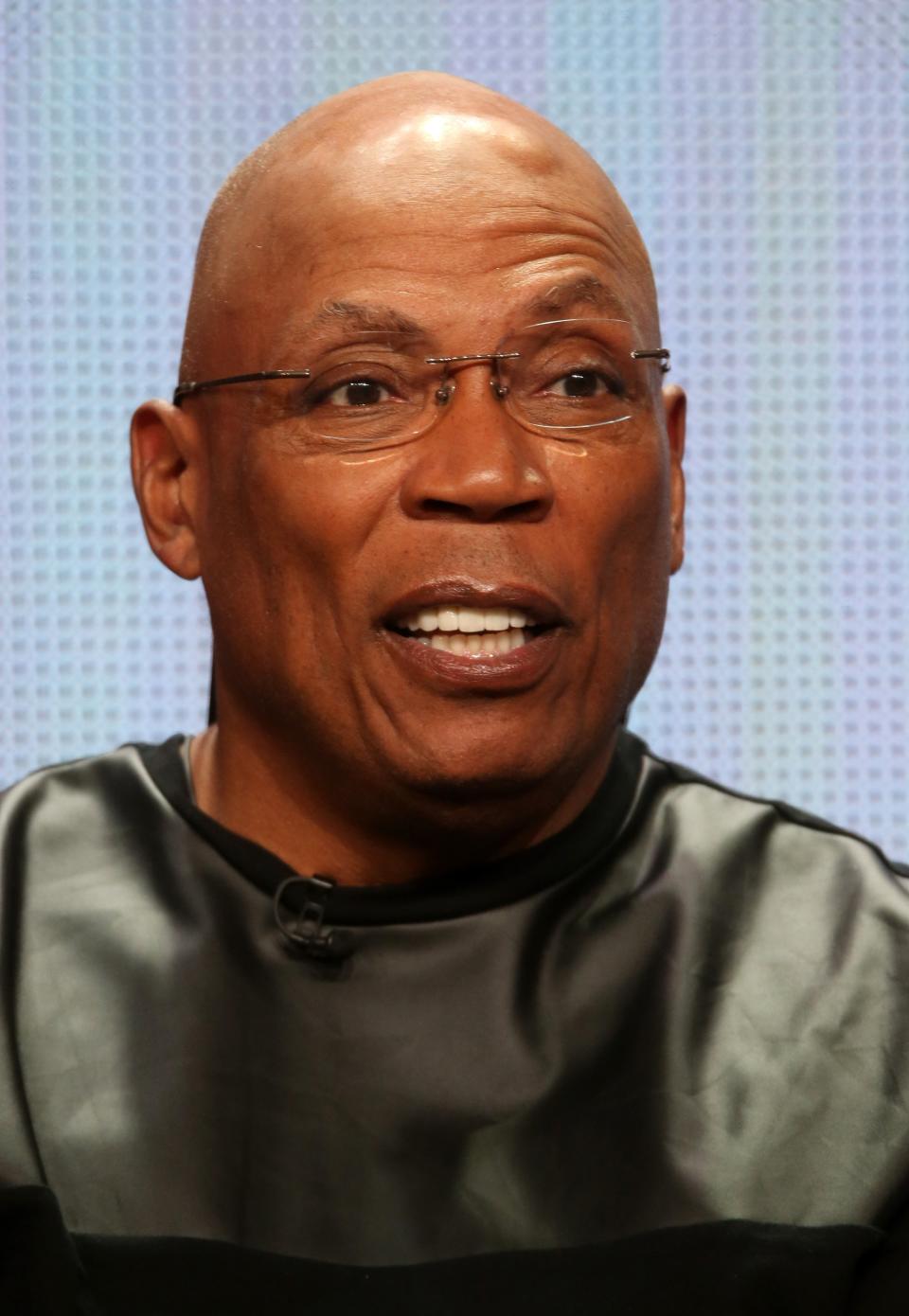
DEADLINE: Who knew that DGA president Paris Barclay is running the Directors Guild from a castle in Wales?
SUTTER: As well he should.
DEADLINE: How liberating are action scenes with swords and arrows, and not having to answer all the barbs about gun violence like with Sons?
SUTTER: I hadn’t thought about that but it’s true, although I’m sure I’ll get nailed for the religious overtones. Now that you mention it, it is kind of nice to not have to write a script with the words, load in another clip.
DEADLINE: You finish a series like Sons months before it airs and by the time you get the audience adulation, everyone has scattered to the next job. The Emmys ignored you again, but the finale turned in huge ratings. What were some of the satisfying moments of closure you had with your Sons cast?
SUTTER: That’s a great question. I guess I felt like I had the rare satisfaction of having a sense of what I wanted the show to be, what I wanted it to accomplish and how I wanted it to end. I took my characters on the journey I really wanted to take them, and that’s a rare thing for a writer. I love my cast. One of the cool things about being out in London is, I got to hang with Charlie Hunnam a lot. It was really difficult for us to process what was going on while it was going on, but hanging out a few months later allowed us to.
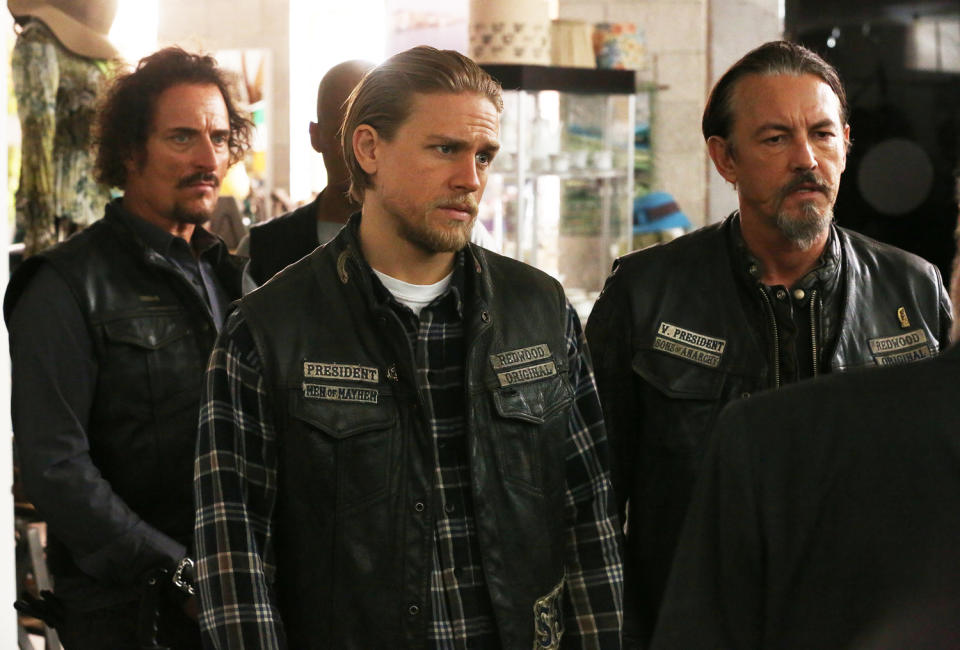
Before Katey and I got a place out there, I was staying on Charlotte Street in Fitzrovia. Charlie was in the next neighborhood, but Guy Ritchie lived in Fitzrovia so maybe once a week, I would just see Charlie go by on his bicycle. We would stop and bullshit. There was one night that was so lovely because Katey was there with me and we’d had a rough day and we were jet-lagged and missing our kid. Then Charlie just came by on his bike and for Katey it was like seeing one of her kids. We hung out for an hour or so and it was this lovely infusion of family. I just really felt how lucky I was and how rare that is to have built those relationships along the way. I love Charlie, man. We can’t wait until we have an opportunity to work together again. I think he had a blast on King Arthur and there’s part of me that’s grateful I didn’t completely crush his soul by the end of our show. He’s actually in a better place than when he started. I love all those guys. It’s great working again with Timmy [Timothy V Murphy] again on Executioner. I get crazy emails from Flanagan. All that’s really, really satisfying.
DEADLINE: Tommy Flanagan was launched in Braveheart. Talk about a guy who fits this period. I’m surprised he wasn’t in the pilot.
SUTTER: I know. I talked to Tommy about doing something on the show. He’s got the wife and the kid out here [Los Angeles] now so he’s not quite as footloose as he was when he started Sons and was living out of a trailer. I wanted to get Charlie on, too. He really wants to do something on the show but he’s booked solid for the next couple years and production schedules change. King Arthur got pushed two months before it started. I’d love to have those guys drop in even if it’s just for an episode.
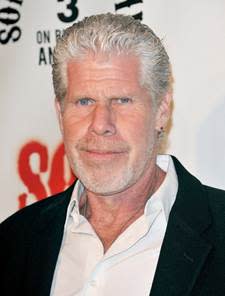
DEADLINE: I got the sense things didn’t end well between you and Ron Perlman over his demise, after
Sons evolved away from him as the principal focus. Was it important to get closure with him and has that occurred?
SUTTER: I have no ill will against Ron, who is a talented guy. Ron really had a different sense of who Clay was and his role in the big picture that perhaps didn’t sync up with mine. As my understanding of the evolution of that character happened, it started to waver more and more from who he thought the guy was or wanted the guy to be. That’s not unusual between an actor and creator and I had these moments with everybody on that cast, including Charlie. Shit just happens and you move on. I think Ron didn’t get closure with the character because of how Clay ended and so it was difficult for me to have closure with Ron. Hopefully at some point that’ll happen. I don’t think he harbors any ill will against me nor do I against him. I wish things had ended a little differently between us, but it’s the nature of this and I’m sure I had as much of a part in it as he did. How that unfolded falls under the generic heading in this business of creative differences, which could mean anything from creative differences to somebody pulling a gun on somebody else. Truth is, I have not had an opportunity to really see Ron at all, so it’s hard for me to gauge. I think if I sat down with Ron now, my sense is that it would be good and we’d figure it out. Ron wasn’t around for the last season and that was hard on him. I was with the other actors, though I have stayed close with Ryan Hurst [whose Opie character was killed in Season 5]. My sense is at some point there will be conversation and closure.
DEADLINE: Hurst moved on to another series, but he had the physical stature to play the title character here. What made newcomer Lee Jones the right guy?
SUTTER: Because we’re shooting in England, there’s a UK tax incentive and that’s where our search began. We saw a lot of guys, some amazing British actors. I don’t want to sound disparaging, but there’s a certain refinement that a lot of these really well-trained British actors have, a poshness almost. It’s not like they don’t have the depth to play a character like Wilkin but to me what was lacking was the roughness around the edges I felt was necessary. That’s why we expanded the search into Australia. I love these Aussie actors. I’m sure it’s because of historical realities, but they’re more raw and not nearly as polished. Ironically, Lee was in L.A. and I saw a tape of him. Something about his performance was raw and emotionalized. I really needed the physicality and for you to believe this guy could swing a 30-pound fucking sword and be hulking and menacing. It wouldn’t work with the standard 5’9” actor who gets pumped up for a role.
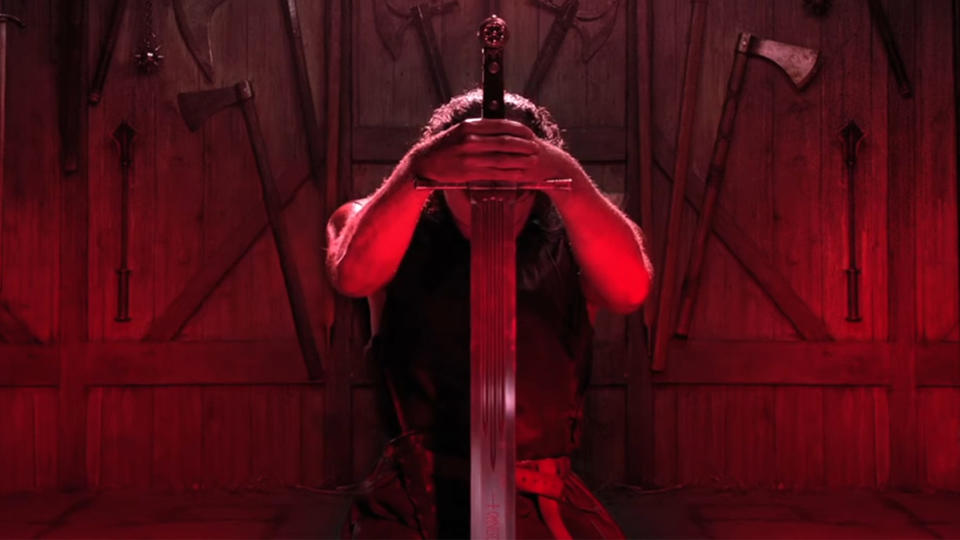
When we flew Lee out to London, Paris and I and our casting Amy Hubbard brought him in. Sometimes you just know. When Flora [Spencer-Longhurst] read for Baroness Lowry, three lines out of her mouth and it was like, she’s physically exactly what I imagined, petite and girlish and yet with this fucking heart of a lion, strong and smart. It was the same when Lee came in. He’s 6’3” and a swimmer so he’s got these big shoulders. He’s hulking and handsome but not pretty, and he had the chops from tons of stage work. We were down to zero hour, so when he came in and read, Paris and I just looked at each other. Our first impulse was like, yeah, and our second impulse was, fuck, that was close. We knew right away. Other guys were bigger and some were names on the cusp of doing feature leads, but there, you had that feeling of, I guess I’ll do a series because it’s going to help my feature career. There was none of that here. He just was really excited about the work and the character. It’s not just learning lines and then pulling a gun. He’s got to ride the horse and fight with a sword. There wasn’t a lot of training that went into Sons’ action sequences beyond, hey, can you ride a motorcycle? Lee embraced the physical commitment here.
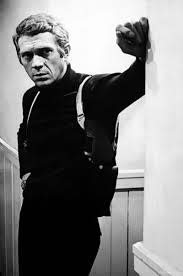
DEADLINE: By the end of the pilot, he seemed well on his way to the point that Jax Teller and Vic Mackey reached, crossing so many moral lines that it’s hard to consider him a redeemable protagonist. You seem drawn to that prototype. Was there some movie where a character straddled that line and made an impression on you?
SUTTER: Yeah. I’m drawn to the complexity of the broken hero. I don’t know if there’s one movie in particular, but I grew up as you did on a great diet of Dirty Harry and Bullitt, and all those guys who helped create that anti-hero genre and did unredeemable things for the right reasons. I never really bought into the guy with the white hat. When I was impressionable, it was Steve McQueen and Clint Eastwood who impacted me creatively, as well as watching way too many Warner Brother cartoons.
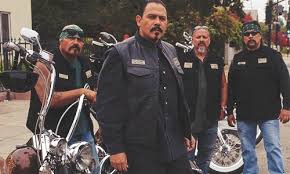
DEADLINE: A moment on the
Sons prequel. It seems an opportunity to capture an Easy Rider vibe with these returning disenfranchised Vietnam vets, but now the conversation is about the Mexican biker gang the Mayans, from Sons Of Anarchy. Beyond servicing a Sons fan base clearly not ready to let go, what else can you tell about vision and how much of this stuff is actually real?
SUTTER: At some point I do have plans to hopefully do the prequel, which I do see as a one-off 10- or 12-episode thing where we begin in Nam and see John Teller and Piney and see how that relationship got created, and bring them back to the States and the obvious external dynamics that were going on with the country and the perception of the war and what an odd kind of perception these vets got when they returned home. And then have it be the development of the club, ending before we start to get too close to some of the mythology that’s already been established.
DEADLINE: What about the Mayans club story line?
SUTTER: The Mayan thing happened as I was talking to Eric Schrier, one of the FX executives I’ve known since The Shield. We were talking about the idea of doing things for other markets, like the Spanish-speaking market. I casually said I’d be open to doing something with the Mayans. It’s the same [biker] subculture, but it’d be interesting to see the influences of that culture and how it impacts the subculture we already understand. I would do a contemporary piece, not a prequel, and place it far enough away from Northern California that it wouldn’t step on the mythology that’s already been told. It doesn’t mean that there couldn’t be some cool, ironic crossovers with familiar characters as the series progressed. I wouldn’t want to set it too close to the world we already know, and step on that. It would be cannibalizing what we worked very hard to create and I wouldn’t do anything to undermine. We’re figuring out what that would look like and I’m in the process of meeting with writers and narrowing it down. My intent is, over the hiatus I’ll initiate a script for the pilot and take it from there.
DEADLINE: Sons is a hard act to follow…
SUTTER: Yes, but this is cool because I love the genre and the subculture. It’s a fun way to dip my toe in that world without risking anything. If it doesn’t work, I don’t feel like I’ve shit on what I’ve already created. If it does work, it exists on its own because it would be a very different show. The world elements would be similar but the subculture and the influence of Spanish culture creates a different energy. Whoever I hire to write that show is going to know the culture. I wouldn’t necessarily even feel comfortable running a show like that, being a white guy from New Jersey. I really want to bring somebody I can guide with what I know, letting them put their life, family and cultural experience to add layers that I can’t provide.
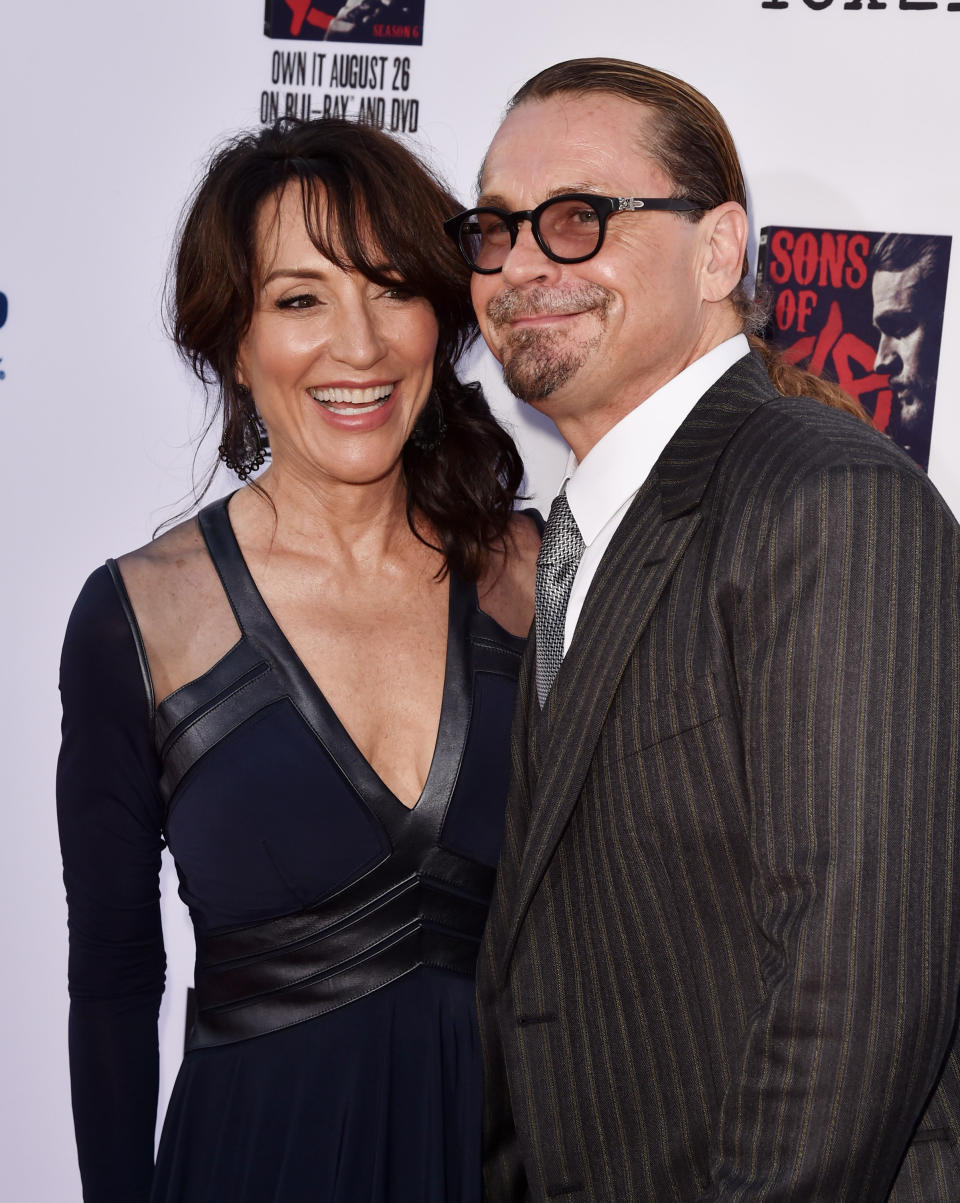
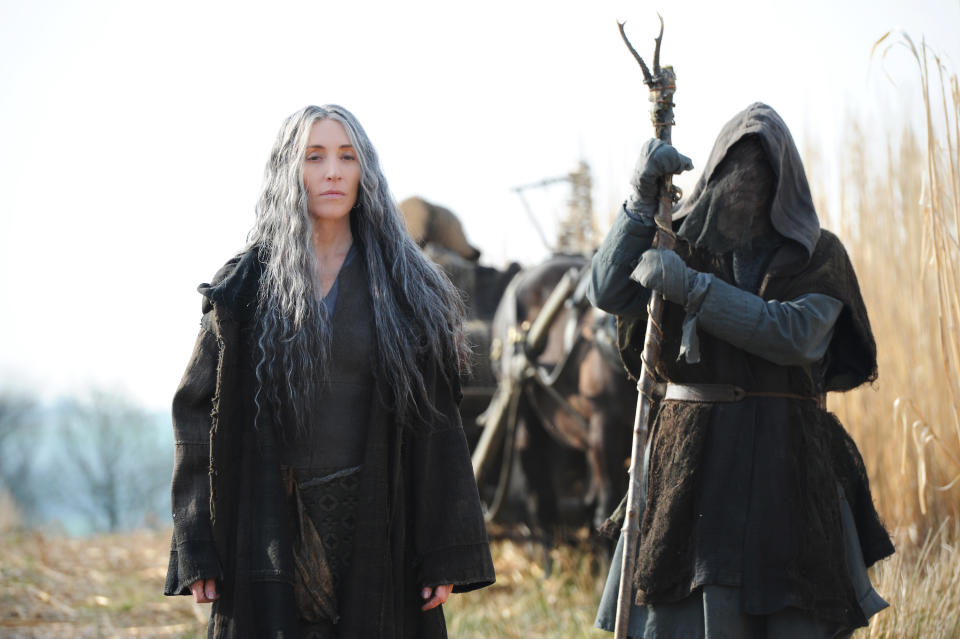
DEADLINE: I appreciate you being so introspective, but I am presenting you here as a soulful, thoughtful guy. Am I going to shatter your media mojo as this dark Twitter lord who calls reporters anatomical slurs? Will this ruin your rep?
SUTTER: [Laughs]. I just did this thing with Hollywood Reporter’s Lacey Rose, who I’ve come to adore, but that relationship did begin with me just fucking reaming her out and literally calling her a cunt on Twitter, and then having every blogger wanting me dead. Look, I still lose my shit. I just sent an email to the Fox music department that I’m sure is going to get me an HR call. I don’t think I’m an asshole, but I’m incredibly passionate about what I do and sometimes as a result I have no filters. But anytime I’m punching a hole through a wall or losing my shit, it’s not because my trailer isn’t big enough or that I’m not getting paid enough. It’s because somehow, the work is being compromised. I don’t mean that to sound pretentious but it’s just the deal. I’m a late bloomer, man, and I know how lucky I am to be doing what I’m doing, and I’m as proprietary and protective of it as a fucking mama bear. I don’t want people to fuck it up. I can honestly say, that is always the impetus for any darkness that may follow me from project to project.
Editor’s Note: This interview originally ran September 8.
Related stories
Katey Sagal Set For Kurt Sutter's Next FX Drama Project 'The Bastard Executioner'
'Sons Of Anarchy's Katey Sagal Mothers Vinny Pazienza In Fight Pic 'Bleed For This'
Get more from Deadline.com: Follow us on Twitter, Facebook, Newsletter

